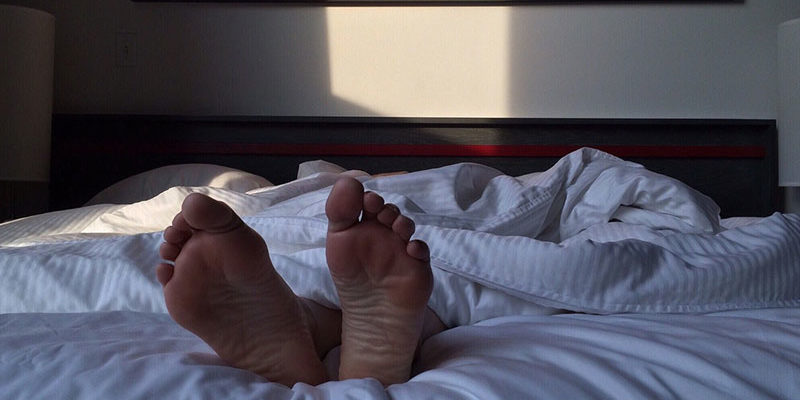1 – Try to go to sleep and get up at the same time every day.
2 – Within 2 hours of your bedtime – avoid bright screens, television and other electronic machines.
Light emitted from electronics, night time light and stimulating T.V. programs are disruptive to sleep and can interfere with your body’s rhythms. Instead, try listening to relaxing music an audio books or mediation.
3 – Get regular exercise.
Studies show that those who exercise regularly sleep better and feel less sleepy during the day. Regular exercise also improves the symptoms of insomnia and sleep apnea and increases the amount of time you spend in the deep, restorative stages of sleep.
4 – Your food and drink choices affect how your sleep.
Monitor your caffeine intake. Caffeine can disrupt sleep for up to ten to twelve hours after drinking it. Consider eliminating caffeine after lunch or cutting back your overall intake. You can substitute with organic decaffeinated coffee, coffee substitutes and a variety of herbal drinks.
5 – Avoid drinking too many fluids in the evening (water, tea, juice).
So you do not go on bathroom trips throughout the night.
6 – Avoid big meals at night.
Try to make dinnertime earlier in the evening, and avoid heavy, rich foods within two hours of bed. Insomnia and stress can be caused by deficiencies in certain nutrients. For some people, a light snack before bed can help promote sleep. When you pair tryptophan-containing foods with carbohydrates, it may help calm the brain and allow you to sleep better. Some of these foods are bananas, chamomile tea, honey (preferably raw honey), flaxseeds and walnut (and their oils), potatoes, oats and almonds.

